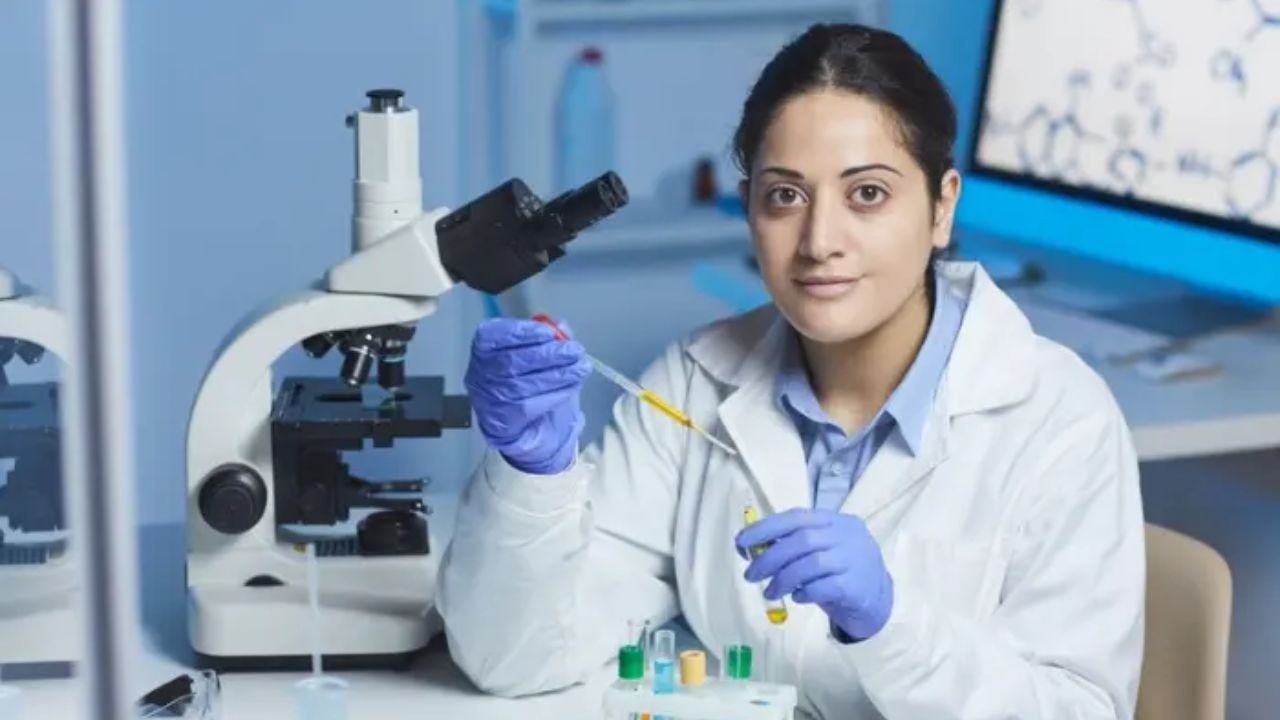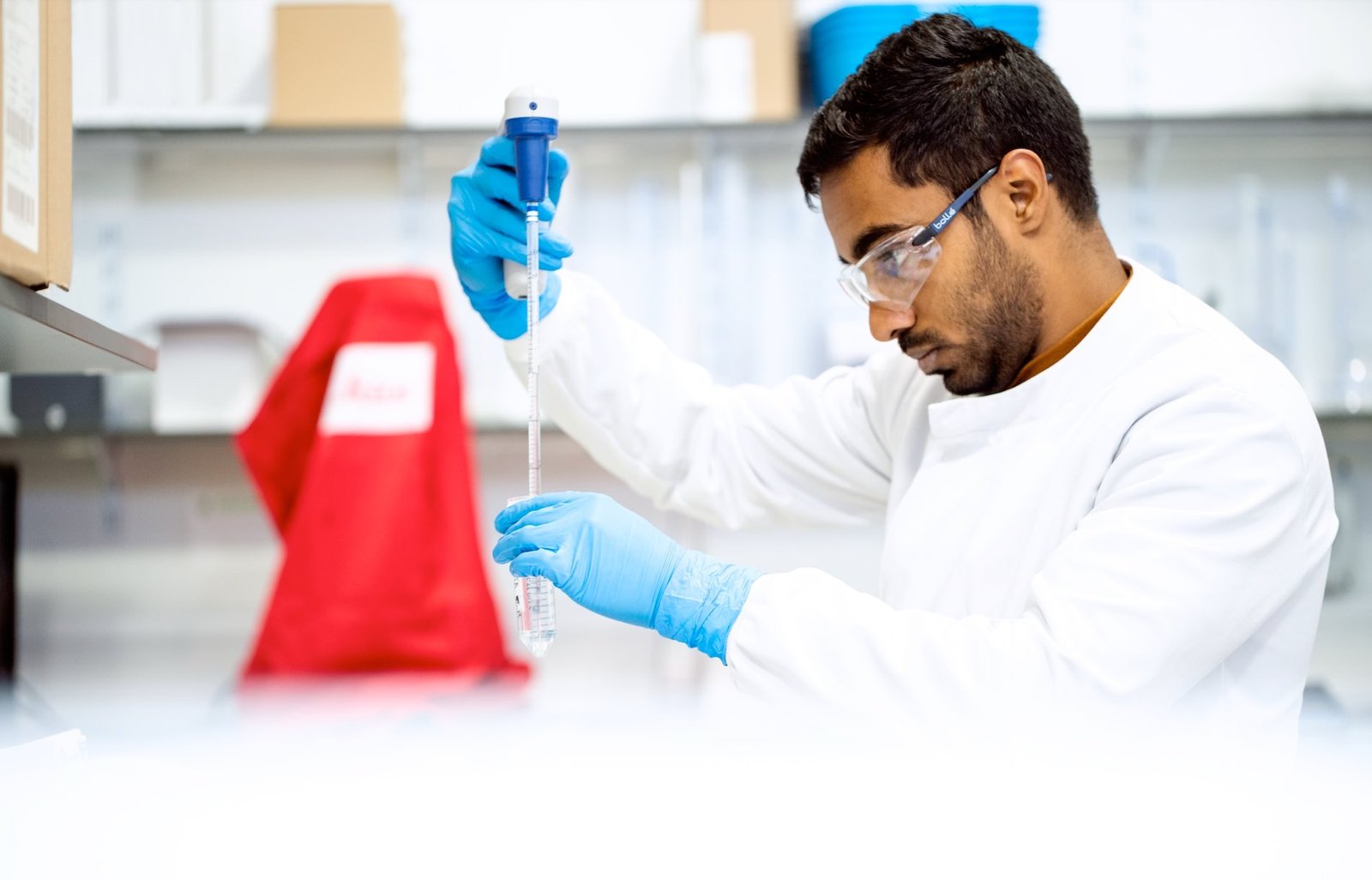Science and medicine rely heavily on accuracy. Behind every reliable test report and every successful experiment, there is a trained professional working silently. That person is the lab technician. They prepare samples, operate advanced equipment, record results, and make sure that laboratories function smoothly every single day. So, what is lab technician in the simplest words? A lab technician is a professional who supports scientists, doctors, and teachers by carrying out tests, maintaining lab safety, and providing accurate data. Their contribution is essential because without them, both research and medicine would slow down significantly.
This detailed guide will help you understand everything about this career. You will learn about job duties, skills, educational paths, salaries, challenges, and the long-term future of this role. You will also discover how to become lab technician step by step.
What is a Lab Technician?
A lab technician is a trained worker who performs scientific tests and ensures that procedures are carried out accurately. They handle laboratory equipment, prepare chemical or medical samples, and support scientists in experiments.
Their role is not always about leading research, but rather about supporting it with accuracy and efficiency. They make sure that results are reliable and that labs maintain high standards of safety. In simple terms, a lab technician is the professional backbone of any laboratory.
Main Duties of a Lab Technician
The job of a lab technician is filled with responsibilities. The exact duties depend on the type of laboratory they are working in. Medical labs focus on patient samples, while research labs may concentrate on experiments or product development.
Some of the most common responsibilities include:
- Collecting, preparing, and labeling test samples.
- Running diagnostic, chemical, or biological tests.
- Recording findings with attention to detail.
- Cleaning and maintaining laboratory equipment.
- Supporting doctors, teachers, or research scientists.
These duties clearly explain what is lab technician in practice. Their everyday work is a balance of precision, responsibility, and reliability.
Work Sectors for Lab Technicians
Lab technicians are not limited to a single field. Their skills are required across multiple industries, each offering unique opportunities.
| Industry | Role of Technician |
| Medical Laboratories | Testing blood, urine, and tissue samples. |
| Schools & Colleges | Supporting teachers and guiding students in labs. |
| Research Institutes | Assisting scientists in experiments and projects. |
| Food Industry | Ensuring food safety and quality control. |
| Engineering Labs | Conducting material strength and product tests. |
This wide range of opportunities demonstrates what is lab technician across different sectors. They are versatile professionals who can adapt to multiple industries.
Skills Needed for Lab Technicians
Success in this profession depends greatly on skills. A technician must combine accuracy with discipline, because even small mistakes can affect results. Some of the most essential skills include:
1. Strong observation and attention to detail:- Lab technicians must notice even the smallest changes. Careful observation ensures tests are accurate and reliable. Attention to detail prevents errors in reporting and analysis.
2. Knowledge of laboratory equipment and instruments:- Technicians must know how to use lab tools. From microscopes to diagnostic machines, they handle complex instruments daily. Correct usage ensures smooth results and reduces risks.
3. Ability to follow safety procedures carefully:- Safety is a priority in every lab. Technicians must follow guidelines to protect themselves and others. Strict safety practices also keep experiments contamination-free.
4. Clear communication and teamwork skills:- Labs often function with teams. Technicians must communicate findings clearly to doctors, teachers, or scientists. Good teamwork helps labs run more efficiently.
5. Problem-solving ability during experiments;- Unexpected issues can arise in labs. A good technician must solve problems quickly. Their ability to adjust methods ensures experiments continue without delays.
These skills explain what is lab technician in real practice. Their work is about combining technical expertise with safe and reliable methods.
Education Path for Lab Technicians
The career journey begins with education. A strong base in science during school is usually required. After that, candidates can pursue diplomas or degrees that lead directly to jobs.
Some common study options include:
- Diploma in Medical Laboratory Technology (DMLT).
- Bachelor of Science in Laboratory Science.
- Specialized courses in microbiology or pathology.
- Training in chemistry, genetics, or clinical analysis.
This educational journey makes clear to become lab technician in a structured way. With proper training, candidates become job-ready for professional labs.
How to Become Lab Technician?
Many students wonder how to start this career. The process is simple and requires dedication. With the right education and training, anyone can begin this path. Steps to become a lab technician:
1. Focus on science subjects in school:- A strong base in biology, chemistry, and physics helps build knowledge. These subjects prepare you for future lab courses.
2. Choose a diploma or degree program:- Enroll in a Diploma in Medical Lab Technology (DMLT) or a Bachelor of Science in Laboratory Science. These programs teach practical and technical skills.
3. Gain practical lab experience:- Internships or training in hospitals and research labs provide real-world practice. Hands-on work builds confidence and improves accuracy.
4. Pursue certifications or apprenticeships:- Many employers value certified candidates. Certifications and apprenticeships show dedication and improve career opportunities.
5. Learn digital and technical skills:- Modern labs use advanced software and equipment. Technicians must learn how to operate digital tools and machines effectively.
6. Apply for entry-level jobs:- Begin with junior roles in hospitals, research labs, or industries. These jobs provide experience and open doors for higher positions.
7. Continue learning and upgrading skills:- Science is always changing. Regular training, workshops, and advanced courses help technicians grow in their careers.
Following these steps makes it clear how to become lab technician successfully. With patience and practice, this career offers stability and growth.
What is the Role of a Lab Technician?
The role of a lab technician extends beyond simple testing. It covers safety, maintenance, analysis, and reporting. They are the professionals who ensure that the entire laboratory system works smoothly.
Some core roles include:
- Analyzing and interpreting results.
- Maintaining a clean and safe laboratory.
- Managing samples, tools, and supplies.
- Reporting data to scientists or doctors.
These responsibilities highlight once again what is lab technician in the modern world. They are the support system that keeps laboratories functional.
Certification and Training
While a diploma or degree provides the foundation, certification can give candidates an extra edge. Employers often prefer certified technicians because it reflects advanced skills and professional commitment.
Some certification and training routes include:
- Laboratory apprenticeship programs.
- End-point assessment programs.
- On-job training with hospitals or labs.
Salary of a Lab Technician
Earnings for lab technicians depend on experience, location, and type of industry. Entry-level salaries are lower, but steady growth comes with training and expertise.
| Experience Level | Average Salary (Yearly) |
| Entry Level | $25,000 – $35,000 |
| Mid Level | $35,000 – $50,000 |
| Senior Level | $50,000 – $70,000+ |
This salary range shows what is lab technician financial potential. With time, experience, and specialization, the career becomes rewarding.
Work Environment
The environment in which lab technicians work is highly structured. It is usually safe but comes with strict rules and discipline. Technicians must wear protective gear, follow safety guidelines, and prevent contamination. They work indoors, often with advanced tools and digital equipment. Collaboration is common, but some tasks require independent focus. This setting demonstrates what is lab technician workplace reality. It is organized, disciplined, and focused on safety.
Career Growth and Future Scope
The future for this profession looks very promising. With science and healthcare expanding worldwide, demand for skilled lab technicians is increasing rapidly.
Possible career paths include:
- Senior laboratory technician.
- Quality control manager.
- Specialist in genetics, microbiology, or pathology.
- Teaching lab instructor or supervisor.
This proves what is lab technician future scope: stable, respected, and filled with opportunities.
Lab Technician vs Scientist
Many people confuse lab technicians with scientists. While they often work together, their roles are very different.
| Aspect | Lab Technician | Scientist |
| Education | Diploma or degree. | Advanced degree required. |
| Focus | Running tests and accuracy. | Research and discovery. |
| Job Style | Supportive and procedural. | Innovative and theoretical. |
This comparison makes it easier to understand what is lab technician versus scientist. Technicians support research, while scientists lead it.
Tips for Aspiring Lab Technicians
Aspiring professionals often ask for guidance. Preparation is the key to success. Practical tips include:
- Focus on science subjects in school.
- Take internships in labs for experience.
- Learn to use digital lab software.
- Always follow safety protocols.
- Keep updating skills and knowledge.
These steps explain clearly how you can become a lab technician in the real world. With preparation, opportunities open quickly.
Conclusion
So finally, what is lab technician? It is a professional who ensures that laboratories function smoothly. They support doctors, scientists, and teachers with accurate testing and careful handling of samples. Their role is vital in hospitals, schools, industries, and research institutes. Salaries grow with skills and experience, and demand is rising worldwide.
For anyone asking how to become lab technician, the answer is clear. Build a strong foundation in science, pursue training, earn certification, and keep learning. The career is stable, respected, and full of opportunities. Lab technicians are the silent pillars of science. Their importance will only increase in the future, making this profession an excellent choice for growth and stability.
Read Our More Blogs:- Importance of Study of Pathology: Role, Benefits, and Future



